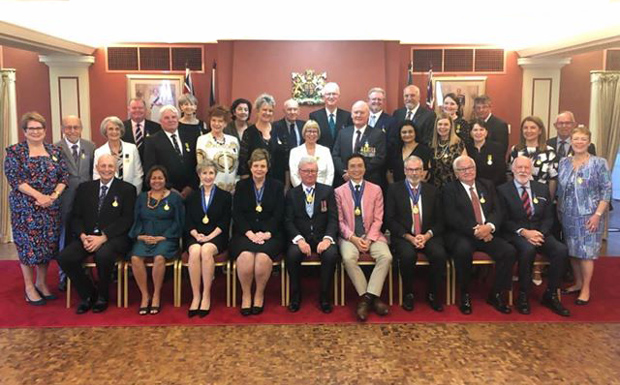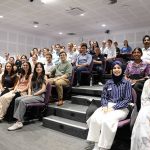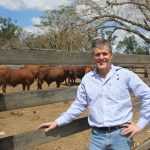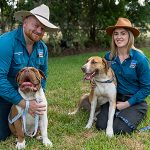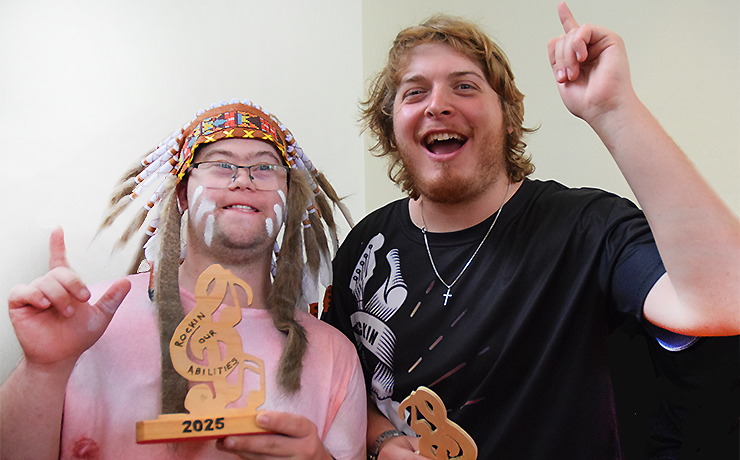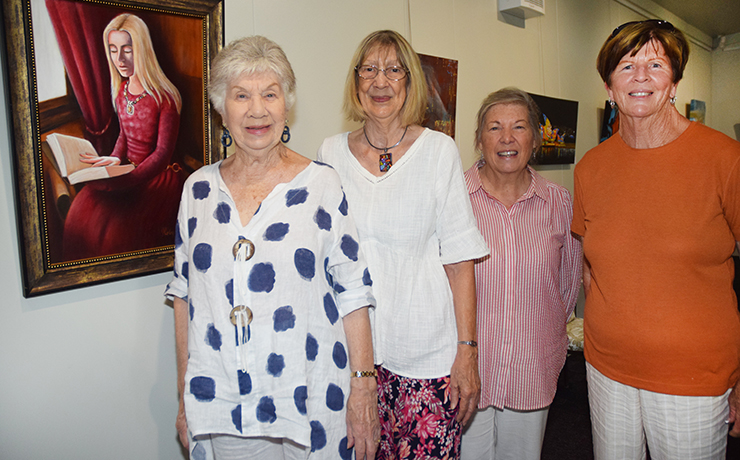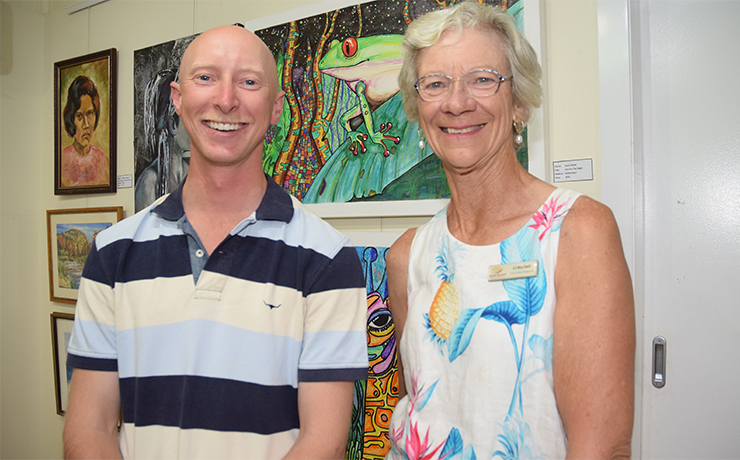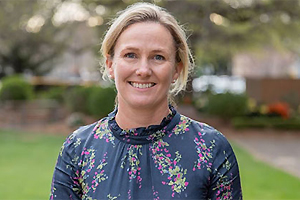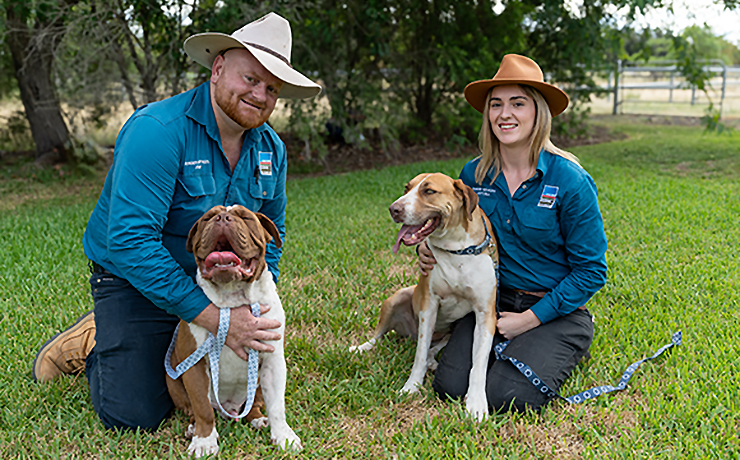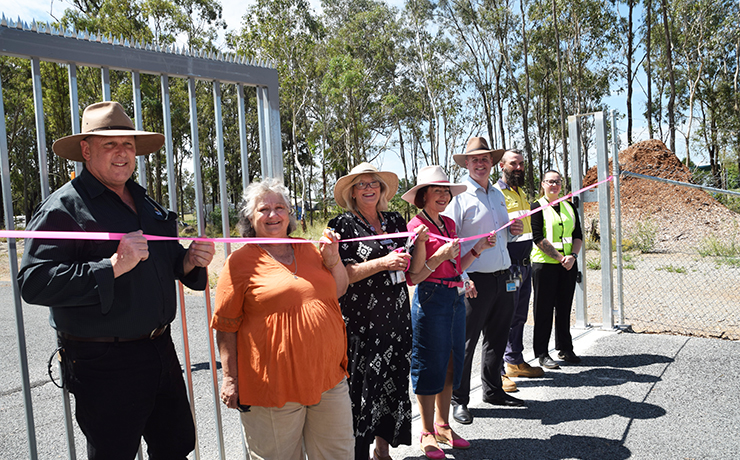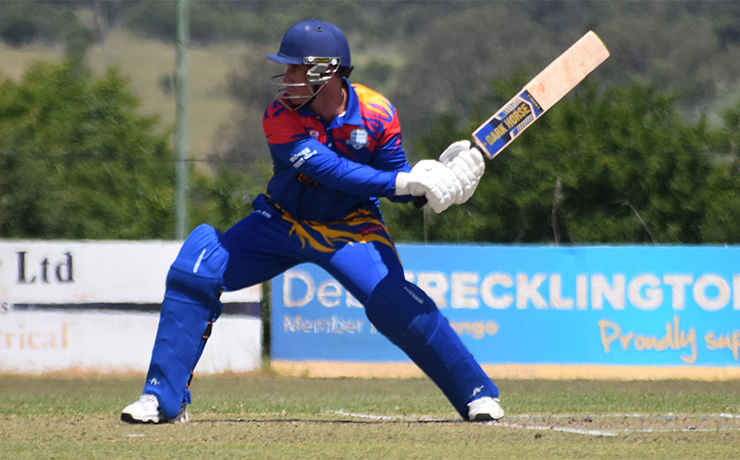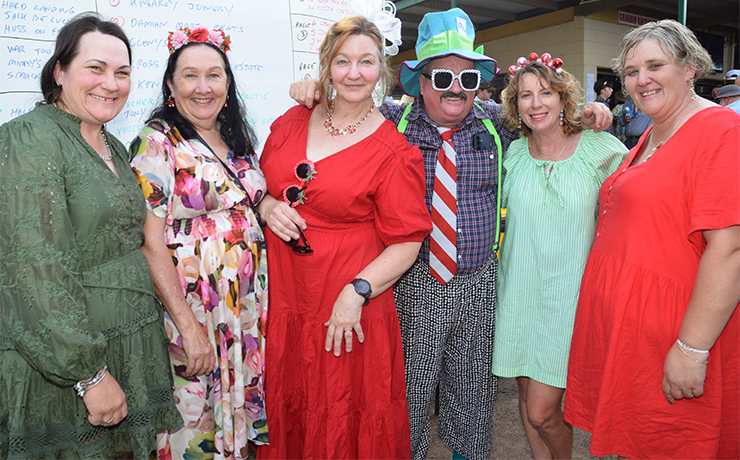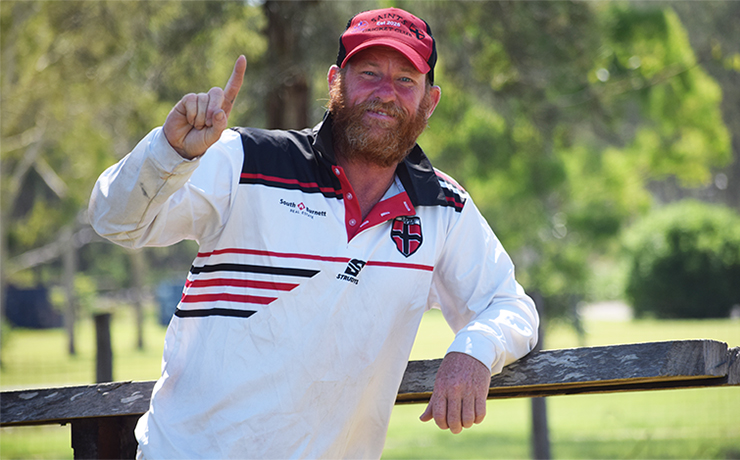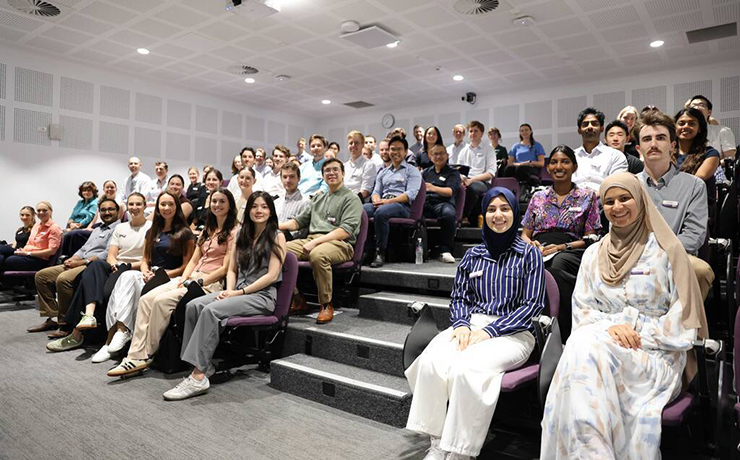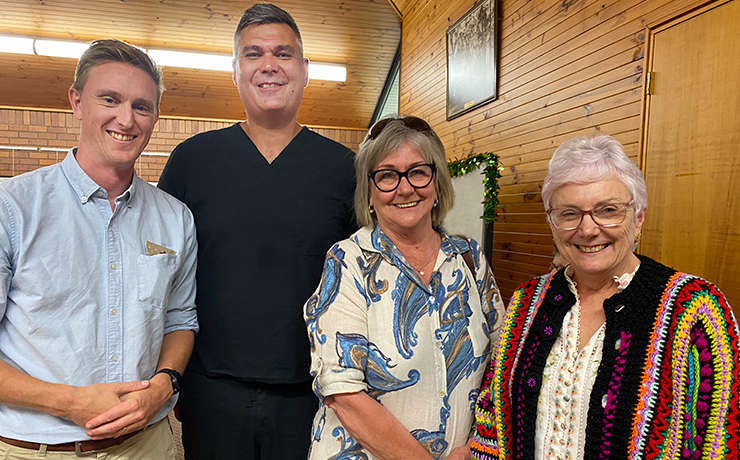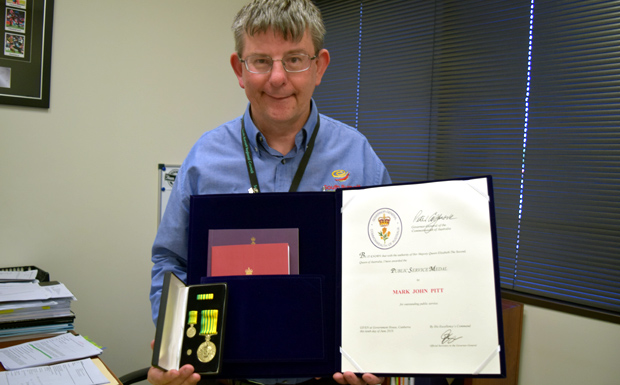
November 6, 2019
South Burnett Regional Council CEO Mark Pitt has had a slightly longer name since June.
Mark was one of only four Queenslanders nominated for a Public Service Medal (PSM) in this year’s Queen’s Birthday honours list, and is now officially known as Mr Mark Pitt PSM.
But the humble holder of the region’s top local government job said his first reaction on hearing news of the award was that he was the victim of an elaborate practical joke.
It wasn’t until an official letter turned up in the mail that he realised the honour was real.
“Only about 11 medals are handed out in Queensland each year,” Mark said.
“I was genuinely humbled to have even been nominated, let alone win.”
On October 25, Mark attended an official investiture ceremony at Government House in Brisbane with his family to receive his medal from Queensland Governor Paul de Jersey AC QC.
He expected to receive a single medal, but was surprised to find his award pack not only contained several in various sizes, but also an instruction manual that outlined when and where each should be used.
Mark was raised in the Lockyer Valley but his career in State and local government stretches back more than 23 years.
After completing a Bachelor of Arts at Griffith University, he originally planned to work as a librarian.
But since these positions were rare, he took a job with a State Government department as a Rural Community Extension Education officer in April 1996, and held it for several years until an internal reorganisation.
“Fortunately, an opening came up for a Community Services Manager at McKinlay Shire Council in Julia Creek around that time, and I jumped at it,” Mark said.
He served in that role for two years before moving on to Bulloo Shire Council as Deputy CEO.
This was followed by positions as CEO of Cook Shire Council and General Manager of Tasmania’s Northern Midlands Council, then an eight-and-a-half year stint as CEO of the North Burnett Regional Council before he joined the South Burnett Regional Council last June.
Outside his jam-packed work hours, Mark has found little time for rest.
In 2005, he was appointed to the Northern Planning Advisory Committee for the Department of Environment and Heritage, which developed a discussion paper on the future of the Gulf of Carpentaria and the Eastern Arafura Sea.
He was Treasurer of the Burnett Inland Economic Development Organisation (BIEDO) between 2012 and 2014, and held the position of Central Queensland Branch board member for the Local Government Managers Australia’s Queensland branch from June 2016 until September 2018.
He was also a board member for the LGMA’s Tasmanian State branch and a Tasmanian community radio station while he was in the Apple Isle.
In 2013, Mark received the LGMA Queensland’s Manager of the Year Award for leadership and management excellence and was also the Australian Institute of Management’s Queensland and Northern Territory Professional Manager of the Year.
As amazed residents heard at last year’s Council ‘Listening Tour’, one of his first actions after taking over the CEO’s job in the South Burnett was to spend his weekends driving over every road in the region’s 3000km road network so he could get familiar with all of them.
Aside from his work-related involvements, Mark has also been an active member of community organisations as diverse as service clubs, the SES and school P&Cs.
He was Charter President of the re-established Rotary Club of Gayndah, and awarded a Paul Harris Fellowship in 2014 for service to the community.
He can now be found most Monday nights at Kingaroy Rotary Club’s meetings.
And somehow – among all this – he also found time to complete a Masters of Governance and Public Policy at Deakin University.
Mark said the thing he enjoyed most about his work was helping people and making a positive impact on the communities he’s worked in.
“It doesn’t matter whether you’re helping an individual or a group, there are very few jobs where you can do that every day,” he said.
However, he’s also noticed that local government has been under pressure to change during his 20 years behind the desk, and he’s not sure it’s necessarily a good thing.
Mark said the amount of paperwork councils are now expected to do, and the myriad rules and regulations they have to comply with, has increased dramatically.
“Councils are also expected to operate as a business and that takes away from their community focus, too,” he said.
“The South Burnett Regional Council, for instance, now sits on almost $1 billion of public assets.
“We’re being asked to manage that like any billion dollar company, with similar penalties if we make a mistake.”
All the same, he still believed that local government’s main reason for existing was to make people’s lives better.
And that belief is the chief motivation that keeps him going to work every day.
